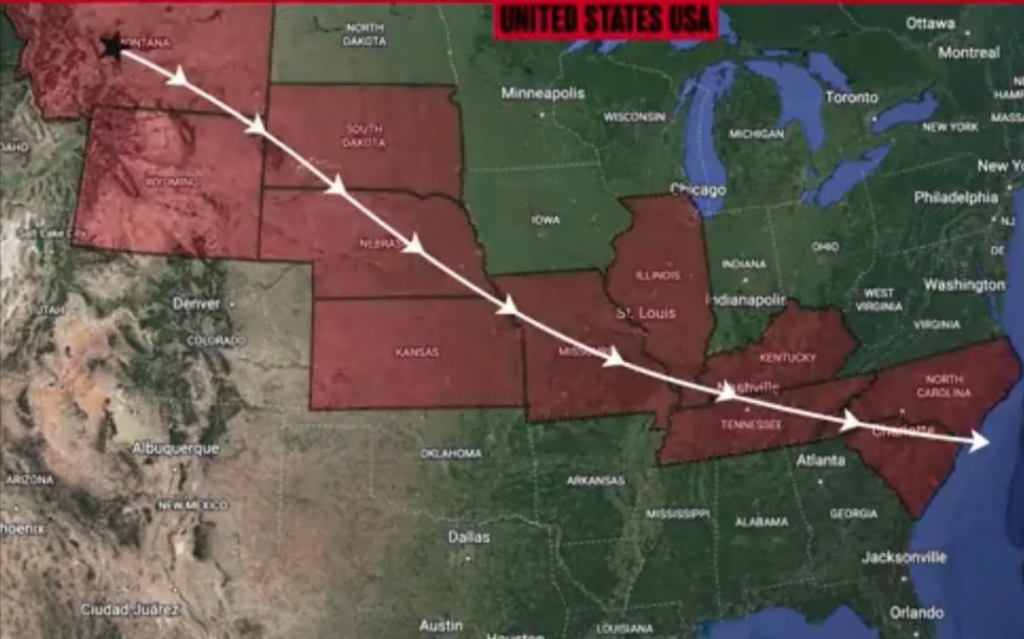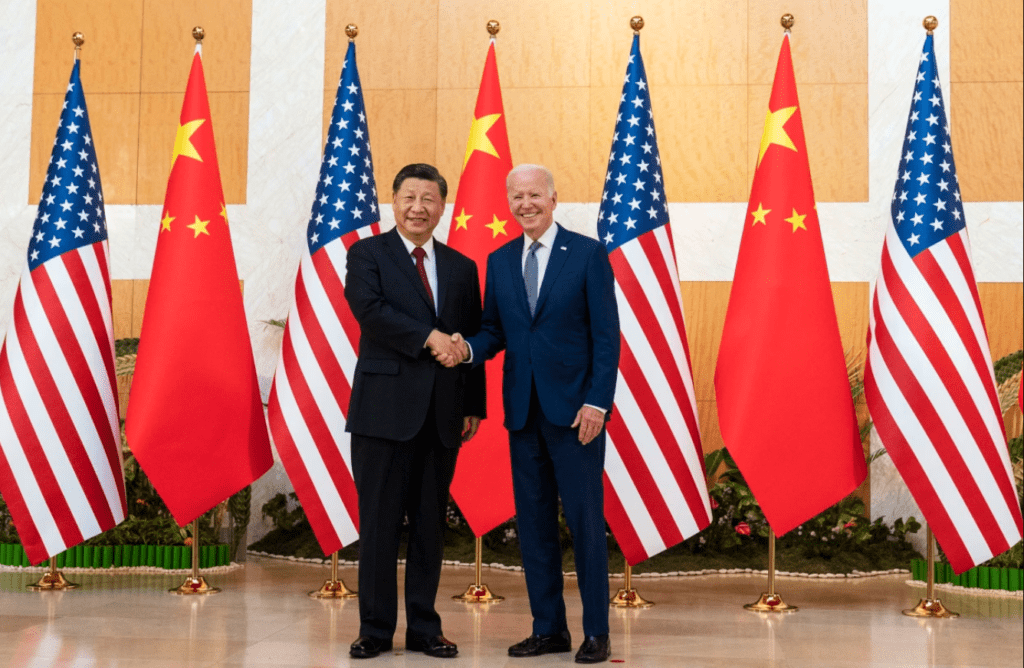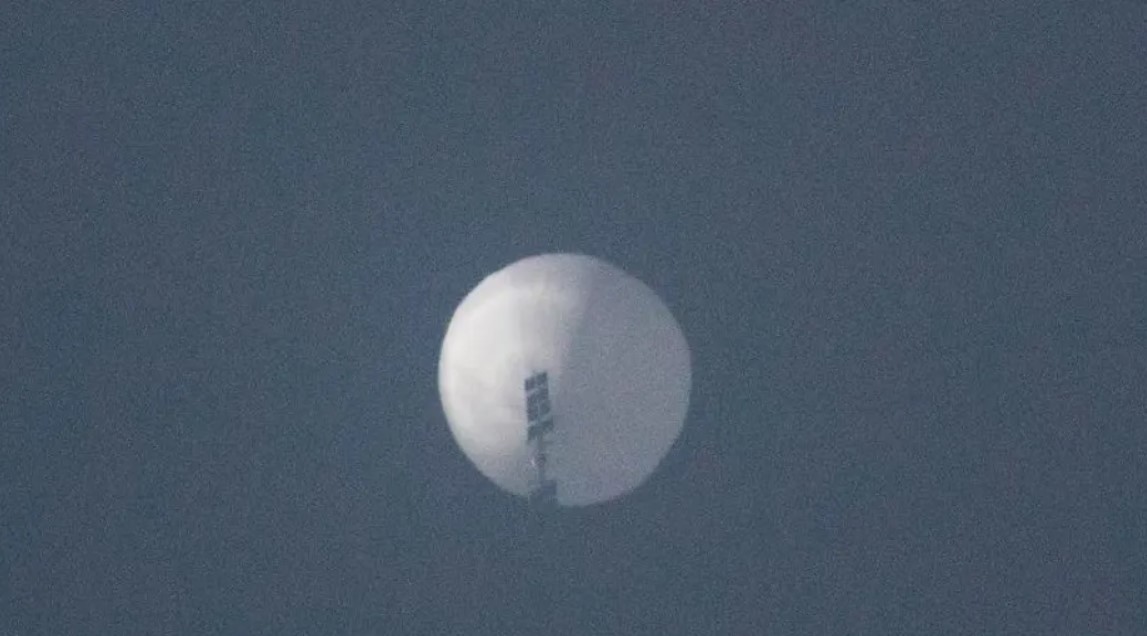
The Chinese Spy Balloon incident has significantly amplified the skepticism surrounding the current administration and its allegiance among many in the United States.
We remember when the Chinese spy balloon infiltrated US airspace, traversing Alaska and the continental United States in late January and early February. The incident, which went largely unnoticed until amateur photographers captured images of the balloon flying over Montana, has raised serious questions about the Biden administration’s handling of national security threats.
The Biden regime was reportedly aware of the presence of the Chinese spy balloon in US airspace for nearly a week, since Saturday, January 28th. However, instead of taking immediate action, the administration chose to downplay the potential danger, hoping that the balloon would go undetected. It was only after the photographic evidence emerged that the Biden White House was forced to acknowledge their knowledge of the balloon’s presence.
What is particularly concerning is that the balloon crossed over major US military bases and missile silos, posing an unprecedented national security risk. Secretary of Defense Lloyd Austin revealed that the US military had to shut down communications and restrict movements as the spy balloon flew over strategic military installations during its week-long flyover from Alaska to South Carolina.
Astonishingly, the balloon was only shot down after it had already gone offshore, raising questions about the effectiveness of the US response.
Here is a list of the US Military bases in the path of the China Spy Balloon.
** Malstrom Air Force Base – Montana – home of 341st Military Wing
** Ellsworth Air Force Base – South Dakota – home of 28th bomb wing
** Joe Foss Field ANG – South Dakota – home of 114th fighter wing
** Sioux City ANG – Iowa – national gard base
** Offutt Air Force Base -Nebraska – headquarters US strategic command
** Camp Ashland – Nebraska –
** Lincoln ANG – Nebraska
** Whiteman Air Force Base – Missouri – home of B52 bombers
** Fort Leonard Wood – Missouri – Army training installation
** St. Louis Army Human Resources – St. Louis, MO
** Scott Air Force Base – Illinois – home of the Air Mobility Command
** Fort Campbell – Tennessee – home fo Screaming eagles, the 101st Airborne
** Nashville ANG – Tennessee
** Smyrna ANG – Tennessee
** Houston Barracks – Tennessee
** McGhee Tyson ANG – Tennessee
** Pope Air Force Base – North Carolina – Air mobility command
** Fort Bragg – North Carolina – one of the largest military installations in the world
** MCAS New River – North Carolina
** Camp Lejeune – North Carolina – military training facility
** US Coast Guard Station Fort Macon

President Joe Biden’s response to the incident has also drawn criticism. Despite the severity of the security breach, Biden referred to the spy balloon as “not a major breach,” downplaying its significance.
This dismissive attitude was further reflected in his statement to reporters in May when he referred to the incident as a “silly balloon” flown by China across the continental US. Such remarks have raised concerns about the President’s understanding of the gravity of the situation and his commitment to protecting national security.
In April, the National Security Council admitted that the Chinese spy balloon had successfully gathered intelligence from several sensitive American military bases. This revelation further highlights the failure of the Biden administration to adequately respond to the threat and prevent the compromise of sensitive information.
More recently, NBC reported that President Biden had contemplated apologizing to China for shooting down their spy balloon after it completed its cross-country journey. Sources close to the administration revealed that Biden’s advisors had to intervene and dissuade him from making a conciliatory call to Chinese President Xi Jinping.
The fact that Biden considered such an apology raises questions about his judgment and whether his decision-making could be compromised.
“The goal is not to get Biden and Xi on the phone,” a senior administration official said. The goal is to get the U.S.-China “relationship back on track,” the official said.
While the Chinese government has maintained that the spy balloon was merely a civilian aircraft that had strayed into unrestricted airspace, national security officials have expressed grave concerns about the incident. They believe that the balloon was a deliberate attempt by China to gather intelligence and potentially compromise US military capabilities.
The episode serves as a stark reminder of the ongoing threat posed by China and the need for robust measures to safeguard national security.
The Biden family has faced scrutiny regarding their financial ties to entities connected to the Chinese Communist Party. Critics argue that such connections raise concerns about potential conflicts of interest and compromises

on national security. While these allegations are separate from the spy balloon incident, they contribute to a broader narrative surrounding the Biden administration’s approach to China.
As the fallout from the Chinese spy balloon incident continues, it is crucial that the Biden administration addresses the security implications and takes decisive action to protect US interests.
The incident has exposed vulnerabilities in the nation’s defenses and underscored the need for enhanced surveillance and response capabilities. Only by acknowledging the severity of the threat and implementing effective countermeasures can the United States mitigate future risks and maintain its national security.
